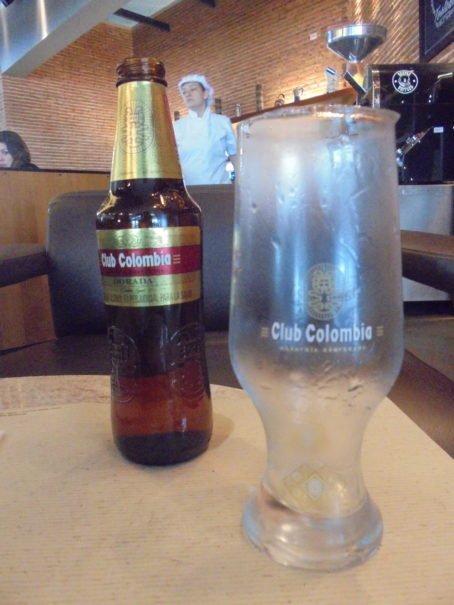
Celebrating García Márquez and Underwhelming Lager

Celebrating García Márquez and Underwhelming Lager
Beer in Aracataca
I found some Colombian pesos in my wallet recently. I should have changed the money in Bogotá, as it is unlikely that I will be able to change it here in Nairobi. Nevertheless, the weathered green bill bearing José Asunción Silva’s bearded countenance and piercing stare is a nice souvenir to have.
How to describe my literary sojourn? Estupendo. Take for example Aracataca, the town where Nobel laureate Gabriel García Márquez was born.
Because it was the 50th anniversary of the publication of his classic, One Hundred Years of Solitude, the book was our guide during our fellowship—the theme of which was the interplay between journalism and literature. Aracataca, the inspiration behind the town of Macondo in One Hundred Years of Solitude, taught me that the world is a place of endless inspiration and infinite possibility.
Aracataca is a sweltering town on Colombia’s Caribbean coast. Mangoes hang from trees by the railway station as train carriages file past. Townspeople get around on motorcycles or sit out on their porches, staring at strangers with curiosity. Dogs of varying breeds and sizes populate the clean, wide streets. Doors stay open into the night. At the nearby museum, on a wall bearing Gabo’s likeness and numerous signatures, one visitor has written, “A Aracataca, pueblo immortal” (Aracataca, the immortal town) and another, “Macondo existe en mi corazón.” (Macondo exists in my heart.)
We sat down for lunch at the Ristorante Gabo & Leo Matiz, named for the writer and the photographer who created of the country’s most iconic photo, Pavo real del Mar. I learned new Spanish words during my time in Colombia, things with which to imbue my journalism: sensacin, impacto, rareza, agilidad. But also words like cataquero, which describes someone from Aracataca. We ate an assortment of meals there over the course of two days: rice, fish, plantains, cassava, banana, cheese, arepas. Tropical fare all washed down with bottles of Club Colombia. It’s an underwhelming pale lager but I grew very attached to it, ordering a dorada at Bogota’s El Dorado airport as I waited for my flight to Amsterdam.
These days I watch the images from this distant yet now familiar land on my screen with great interest: Venezuelans crossing into Cucuta, social unrest in the predominantly Afro-Colombian city of Buenaventura, FARC’s demobilization. I muse about how a book opened up a new world to me, and I plot ways to return.